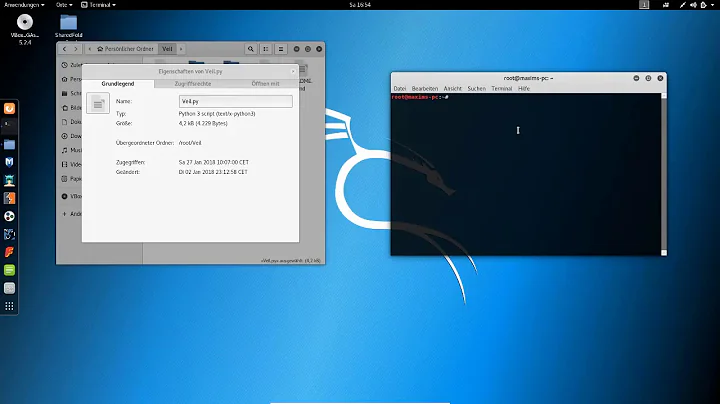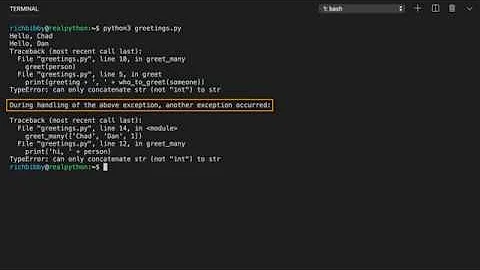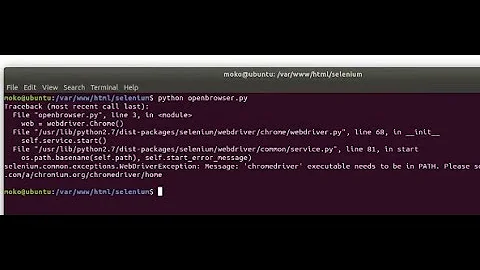traceback from a warning
You can turn warnings into exceptions:
import warnings
warnings.simplefilter("error")
Now instead of printing a warning, an exception will be raised, giving you a traceback.
You can get the same effect with the -W command line switch:
$ python -W error somescript.py
or by setting the PYTHONWARNINGS environment variable:
$ export PYTHONWARNINGS=error
You can play with the other warnings.simplefilter() arguments to be more specific about what warning should raise an exception. You could filter on warnings.RuntimeWarning and a line number, for example.
Related videos on Youtube
codeKiller
Updated on September 14, 2022Comments
-
 codeKiller over 1 year
codeKiller over 1 yearI have a code which, at some point shows a warning, I think that it is having a problem calculating a
mean()I would like to know if there is any way to force python to tell me where, or which line, or whatever more information than just this message:
C:\Python27\lib\site-packages\numpy\core\_methods.py:55: RuntimeWarning: Mean of empty slice. warnings.warn("Mean of empty slice.", RuntimeWarning) C:\Python27\lib\site-packages\numpy\core\_methods.py:79: RuntimeWarning: Degrees of freedom <= 0 for slice warnings.warn("Degrees of freedom <= 0 for slice", RuntimeWarning)I do not know if it is possible to "catch" a warning.....If I have any error, usually I am using traceback package:
import tracebackAnd then I usually do:
try: #something except: print traceback.format_exc() -
 3pitt over 6 yearswhat are the pros and cons of the first 2 options? The third seems more extreme
3pitt over 6 yearswhat are the pros and cons of the first 2 options? The third seems more extreme -
Martijn Pieters over 6 years@MikePalmice: all 3 options have the exact same effect, they are just different ways of signalling to the Python binary to change the filter settings.







